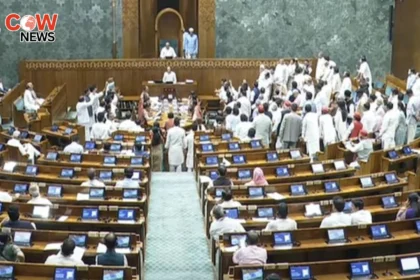Islamabad( The COW News Digital) Federal Finance Minister Mohammad Aurangzeb has stressed that for Pakistan to become a $30 trillion economy by 2047, the country must effectively address population growth and climate change. He warned that failing to tackle these challenges would prevent Pakistan from fully leveraging its economic potential.
Speaking at a Public Financial Management conference organized by the Institute of Chartered Accountants of Pakistan (ICAP), Aurangzeb emphasized that the government has been working to put the country on the right track. He highlighted relief measures for low-income earners in the national budget and noted simplifications in tax filing procedures, reducing forms from 800 to 35–40 fields.
Aurangzeb also addressed the issue of cryptocurrency regulation, stating that comprehensive rules and regulations will soon be introduced, urging stakeholders to exercise patience for a few more months as legal frameworks are finalized.
On Pakistan’s financial strategy, he said the government plans to issue Panda Bonds by December 2025, with all agreements and rollovers with China already settled. He assured that the country has sufficient internal resources to manage flood-related damages before seeking international assistance. Reflecting on the 2022 floods, Aurangzeb noted that although $11 billion in aid was pledged in Geneva by the global community, Pakistan was unable to implement effective investment plans at that time.
He highlighted that the government is currently focused on relief and rescue, while the next phase will address reconstruction, rehabilitation, and restructuring. “Timely decisions and execution are essential; this is the hallmark of better management,” he said, noting that Moody’s, Fitch, and S&P have already upgraded Pakistan’s ratings.
The Finance Minister also discussed macroeconomic stability, structural reforms in taxation, energy, and state-owned enterprises (SOEs), and privatization efforts, listing 24 institutions for divestment. He emphasized the importance of curbing subsidies that are widely misused, noting that at least wasteful practices have been reduced.
Aurangzeb warned that climate change and population growth are existential threats to Pakistan. He urged that all relevant stakeholders, including the private sector, must work with the government to implement environmentally sustainable and adaptive development projects.
He concluded that Pakistan’s journey toward economic prosperity requires not only fiscal prudence but also strategic long-term planning to combat environmental and demographic challenges.







